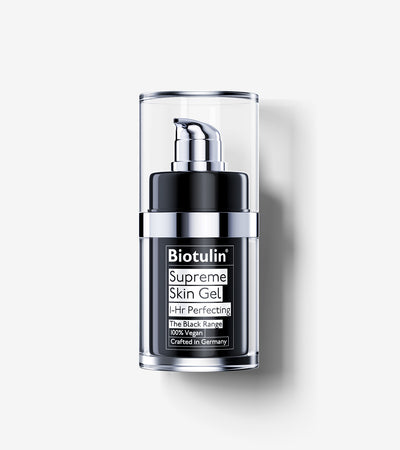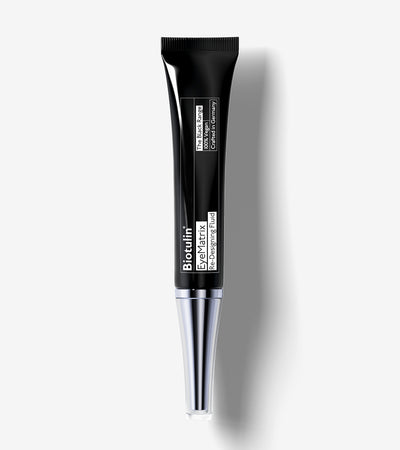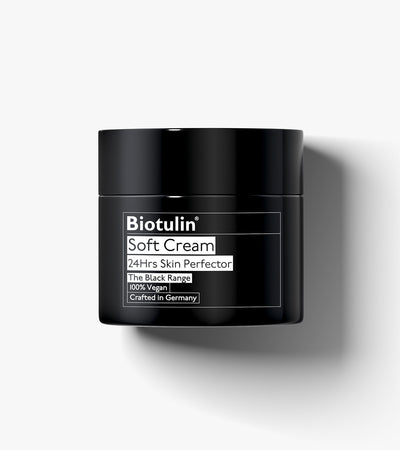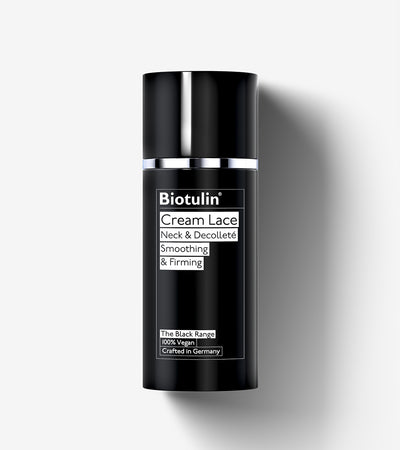Overview/Definition
Sodium hyaluronate is a powerful humectant widely used in skincare products due to its exceptional ability to hydrate and plump the skin. It is the sodium salt form of hyaluronic acid (HA), a naturally occurring substance found in the human body, particularly in the skin and joint fluid. Hyaluronic acid plays a crucial role in maintaining the skin's moisture levels and supporting its structural integrity. Sodium hyaluronate is derived from hyaluronic acid through a process that involves extracting it from animal tissues or bacterial fermentation. Unlike hyaluronic acid, which has a higher molecular weight and primarily sits on the skin's surface to prevent water loss, sodium hyaluronate has a lower molecular weight. This allows it to penetrate the epidermis, the top layer of the skin, and deliver hydration more deeply. Its smaller molecular size enables it to attract and bind water more effectively, making it a potent ingredient for enhancing skin hydration and elasticity. Sodium hyaluronate's hydrophilic properties allow it to mix easily with water, drawing moisture into the skin cells and reducing dryness and flaking. This makes it an excellent ingredient for improving the skin's overall appearance and texture. Additionally, sodium hyaluronate has anti-inflammatory properties, which can help soothe skin irritations and support wound healing. Its ability to promote tissue repair and cell multiplication makes it beneficial for various skin concerns, including aging, dryness, and inflammation. Sodium hyaluronate is considered safe and well-tolerated, with few reported side effects, making it a popular choice in many skincare formulations.
Function in Skincare
Sodium hyaluronate serves multiple functions in skincare:
- Humectant: It attracts and binds water to the skin, providing intense hydration and helping to maintain the skin's natural moisture levels.
- Anti-inflammatory: It soothes skin inflammation and irritation, promoting a calmer and more even complexion.
- Anti-aging: By improving skin hydration and elasticity, it helps reduce the appearance of fine lines and wrinkles, contributing to a more youthful appearance.
- Wound healing: Its ability to support tissue repair and cell multiplication aids in the healing process of skin injuries and irritations.
- Skin plumping: It enhances the skin's volume and firmness, resulting in a smoother and more supple texture.
Skin Type Suitability
Sodium hyaluronate is suitable for various skin types, including:
- Dry Skin: Its powerful hydrating properties make it ideal for dry skin, helping to alleviate dryness and flaking.
- Sensitive Skin: Due to its anti-inflammatory effects and gentle nature, it is well-tolerated by sensitive skin types.
- Aging Skin: It addresses concerns related to aging, such as fine lines, wrinkles, and loss of elasticity, by improving skin hydration and plumpness.
- Dehydrated Skin: It helps to replenish and maintain optimal moisture levels in dehydrated skin.
Benefits
Sodium hyaluronate offers several specific benefits for the skin:
- Enhances skin hydration and moisture retention, reducing dryness and flaking.
- Improves skin elasticity and firmness, contributing to a more youthful appearance.
- Reduces the appearance of fine lines and wrinkles by plumping the skin.
- Soothing anti-inflammatory effects help calm and reduce skin irritation.
- Supports wound healing and tissue repair, promoting overall skin health.
Scientific studies support the efficacy of sodium hyaluronate in skincare. Research has shown that it can significantly improve skin hydration, elasticity, and reduce the depth of wrinkles. Its anti-inflammatory properties have also been demonstrated in studies on conditions like rosacea and seborrheic dermatitis.
Potential Side Effects or Risks
Sodium hyaluronate is generally considered safe and well-tolerated. However, there are a few potential risks and side effects to be aware of:
- Although rare, some individuals may experience skin irritation or redness, especially those with hypersensitive skin.
- If any irritation occurs, it is recommended to discontinue use immediately.
It is advisable to perform a patch test before incorporating new products containing sodium hyaluronate into your skincare routine to check for any adverse reactions.
Usage in Skincare Products
Sodium hyaluronate is commonly found in a variety of skincare products, including:
- Serums
- Moisturizers
- Eye creams
- Face washes
- Lotions
- Gels
- Masks
It is typically used in concentrations that allow it to effectively penetrate the skin and deliver hydration. The exact concentration can vary depending on the product formulation and intended use.
How it’s used
To incorporate products with sodium hyaluronate into your skincare routine, follow these best practices:
- Apply products containing sodium hyaluronate to clean skin for optimal absorption.
- Use serums or moisturizers with sodium hyaluronate daily to maintain consistent hydration levels.
- Layer products appropriately, applying lighter formulations like serums before heavier creams or lotions.
- Complementary ingredients that work well with sodium hyaluronate include other humectants like glycerin, as well as antioxidants and peptides that support overall skin health.
Scientific Studies/Research
Several scientific studies support the efficacy and benefits of sodium hyaluronate in skincare. Research has demonstrated its ability to improve skin hydration, reduce the appearance of wrinkles, and soothe inflammation. For instance, a study showed that formulas containing sodium hyaluronate decreased wrinkle depth and improved skin elasticity. Another study highlighted its effectiveness in reducing symptoms of rosacea, an inflammatory skin condition. These findings underscore the multifaceted benefits of sodium hyaluronate in skincare formulations.
Other Names/Synonyms
Sodium hyaluronate may also be listed under the following names:
- Hyaluronate sodium
- Hyaluronic acid sodium
- Hyaluronic acid sodium salt
- Hyalurone sodium
Sustainability/Environmental Impact
The sustainability of sodium hyaluronate depends on its source. When derived from bacterial fermentation, it is generally considered more sustainable than animal-derived sources. It is important to look for products that use responsibly sourced sodium hyaluronate and are certified as vegan or cruelty-free. The environmental impact can be minimized by choosing brands that prioritize sustainable practices in their production processes.
Fun Facts (Optional)
Sodium hyaluronate's ability to hold up to 1,000 times its weight in water makes it a powerful hydrating agent. Its use in skincare has grown significantly due to its effectiveness in improving skin hydration and reducing the signs of aging. Additionally, sodium hyaluronate is used in medical applications, such as eye surgery and joint injections, highlighting its versatility and importance in various fields.





